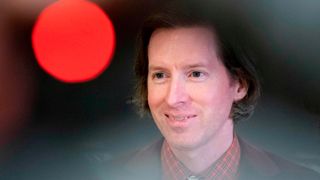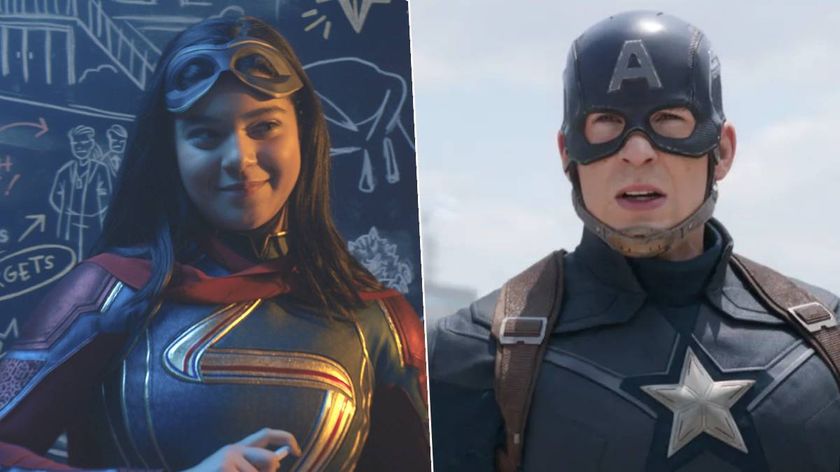Why we need a new Wes Anderson film – now more than ever
Wes Anderson simplifies things that rarely are: family fights, deaths, unrest. His movies are the escapism we crave

Wes Anderson’s The French Dispatch (full title: The French Dispatch of the Liberty, Kansas Evening Sun) will one day reach cinemas, and – if the trailer gives any indication – it will another wonderful exercise in filmmaking from the director.
Following three separate storylines, The French Dispatch – Anderson’s first output since 2018’s Isle of Dogs – centres on a group of journalists working for at an American newspaper outpost based in a fictional French City. The cast features a mixture of Anderson favourites and newcomers: Bill Murray, Adrien Brody, Léa Seydoux, Owen Wilson, and Tilda Swinton star alongside Timothée Chalamet, Benicio del Toro, and Jeffrey Wright. Its trailer has all of the hallmarks we expect from a Wes Anderson film; bright colours, flat line delivery, and meticulously stylised shots.
Naturally, it prompted some eye-rolls.
While most film fanatics adore Anderson's work, his films have long been an easy target for suffocating cinephiles who want to show off how much they know about cinema. Of course, anything as hyper-specific as the director's idiosyncratic style is bound to be divisive – the colours range from soothing to obnoxious; the dialogue may be funny, but some critics argue it lacks humanity. The ire Anderson provokes, though, is less about a specific film and more about what his filmography seemingly represents.
Enjoying Wes Anderson's films has become aesthetic shorthand for an outdated idea of a hipster: Urban Outfitters vinyl, film photography, sad boy misogyny. Some criticisms of Anderson’s films are entirely legitimate – they lack people of colour in major roles, with Rolling Stone dubbing it “benign Criterion-Collection colonialism” in reference to Darjeeling Limited and Isle of Dogs. However, these valid criticisms are rarely cited by the eye-rollers.
Finding Wes Anderson’s films obnoxious is hardly new – even positive reviews throw around skin-crawling terms like “quirky”, “whimsical”, and “garish”. Since his early career, many critics have claimed that behind the gorgeous set design and perfect shots lie deadpan delivery and 2D characters. They can hardly bemoan his technical skill, but they can ask: is it human? Indeed, A review of The Life Aquatic stated, “there's precious little humanity on display”, while another said Anderson creates, “overly precious paintings inhabited by emasculated man-children”.

It isn’t simply that people find the flatness annoying; almost two decades ago, academic Jeffrey Sconce noted that people used to traditional filmmaking find Anderson’s “narrative blankness” unsettling, placing him alongside Spike Jonze as being cynical and pessimistic. Anderson takes a distance, not transposing a moral stance, leaving viewers to make their own minds up. Frequent critic Kenneth Turan has gone as far as to call such films “morally irresponsible”.
Sign up for the Total Film Newsletter
Bringing all the latest movie news, features, and reviews to your inbox
As film critic David Ehrlich pointed out: “Complaining that Wes Anderson has made another Wes Anderson movie is like being mad at a bagel for having a hole in the middle.” The same things that people abhor about Anderson’s films, like the flat simplicity, are exactly what makes them likeable to someone with a slightly different sensibility. It’s that simplicity, even, that that makes his output so enduring.
The world is complicated and it is terrifying in a way it has never been. Millennials are finding it difficult to imagine a future where this burning planet actually outlives them. And that's exactly why we need a new Wes Anderson film. They are reliable treats – the dopamine hit many of us need right now. We enjoy franchises like the MCU and Star Wars for the same reason: because we know what to expect from our cinema trip, and that's a wonderful thing. Honestly, in a snarky world, it’s hard to admit sincerity, but I truly love Wes Anderson's films. I love pastels, jaunty music, scale models, straightforward dialogue, black humour, and the dependability of an actors’ faces I know and love appearing on screen with a slightly different moustache. I crave it.

To be fair, Wes Anderson’s films, in their perceived simplicity, do invite an over-simplified reading. But his aesthetic is deceptively lazy; it takes a lot of work to make something look that straightforward. It’s taken Anderson the better part of three decades to perfect something that is so ubiquitous with his work that even people who haven’t seen a single one of his films can recognise it anywhere.
His first films, Bottle Rocket and Rushmore, do have some of the hallmarks that we’ve come to associate with his work. But visually, their muted colours are a world away from, say, 2014’s Grand Budapest Hotel. The childish blockiness of the hues in The Royal Tenenbaums and The Life Aquatic stand alone, too, while the apparently garish pastels really only kicked in around Moonrise Kingdom. His style evolving to the point of self-parody is, as with everything else, a choice, and it’s one that’s developed over time.

One thing Anderson has always done is to divide the world into neat, easily digestible tableaus. As Rushmore begins, curtains draw back, distancing us from the complexities of the characters’ interpersonal relationships and telling us what to pay attention to in precise shots. In The Life Aquatic, Anderson slices a scale model of the Belafonte in half to show us the action inside, moving from room to room. He employed a similar trick on The Grand Budapest Hotel, too. While footage from The French Dispatch shows that Anderson might actually be moving his camera now, generally, the tight, stable shots that he favours leave no room for misinterpretation or distraction: we’re told exactly what to look at, and it looks good. How to feel about it, if at all, is left up to us.
Anderson’s distinct style gives diverse films a unifying identity. His stories take place in different countries, eras, and realities, spanning genres with school dramas, family fights, sea voyages, and coming-of-age tales. When I look for escapism from this flaming planet and my own problems, I want to be enveloped in a world made simple. Anderson simplifies things that rarely are: family fights, deaths, unrest.
Of course, if his shtick really rubs you up the wrong way, there’s no convincing you otherwise. But, even if his films aren't for you, we all have our own Wes Anderson: a film or artist that will always come through with what we expect when we need it most. Right now, a new Wes Anderson film is what I need – what the world needs.
Marianne Eloise works as a freelance journalist covering film, TV, wellness, digital culture, money, and music, and a variety of other topics. You'll find her bylines in a variety of print and online publications, such as 12DOVE, The Cut, The New York Times, Vulture, i-D, and Dazed.
Most Popular







